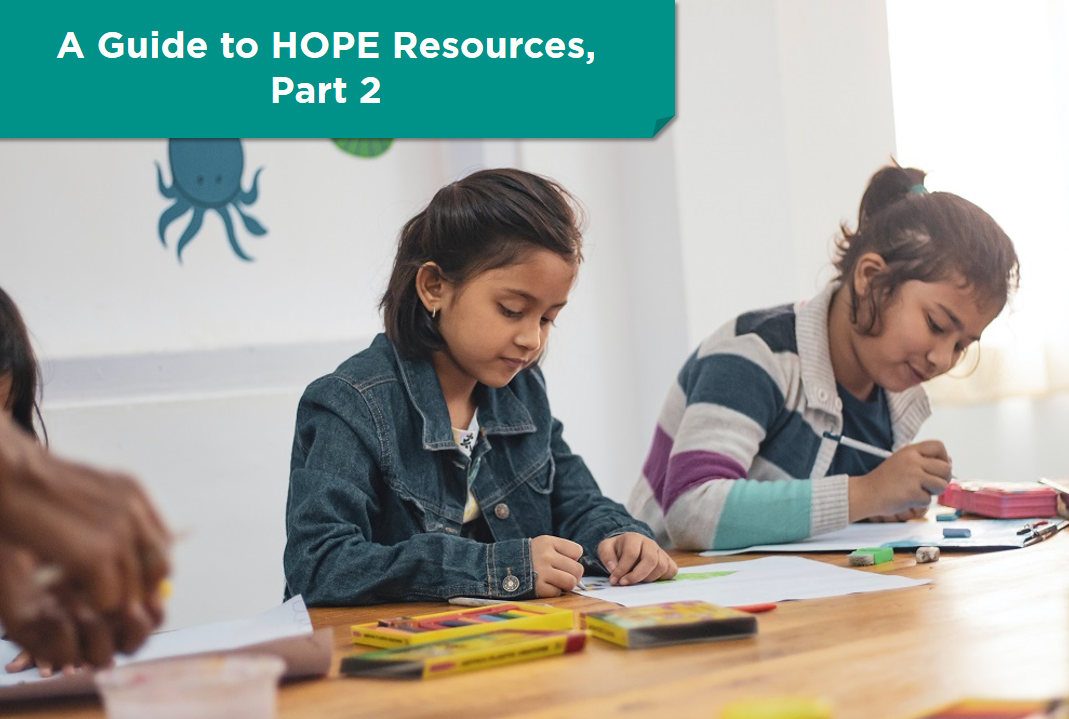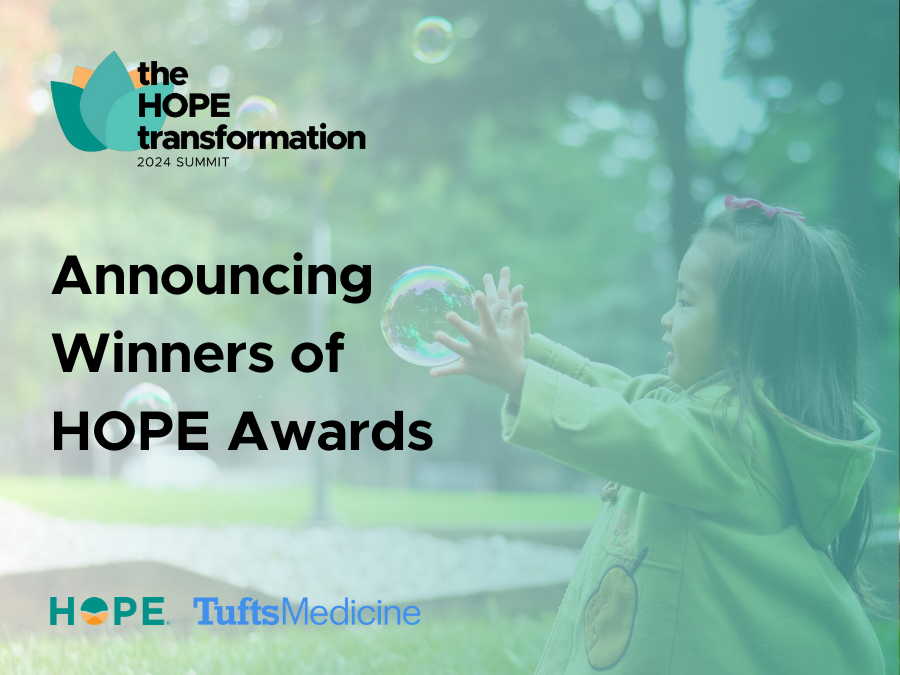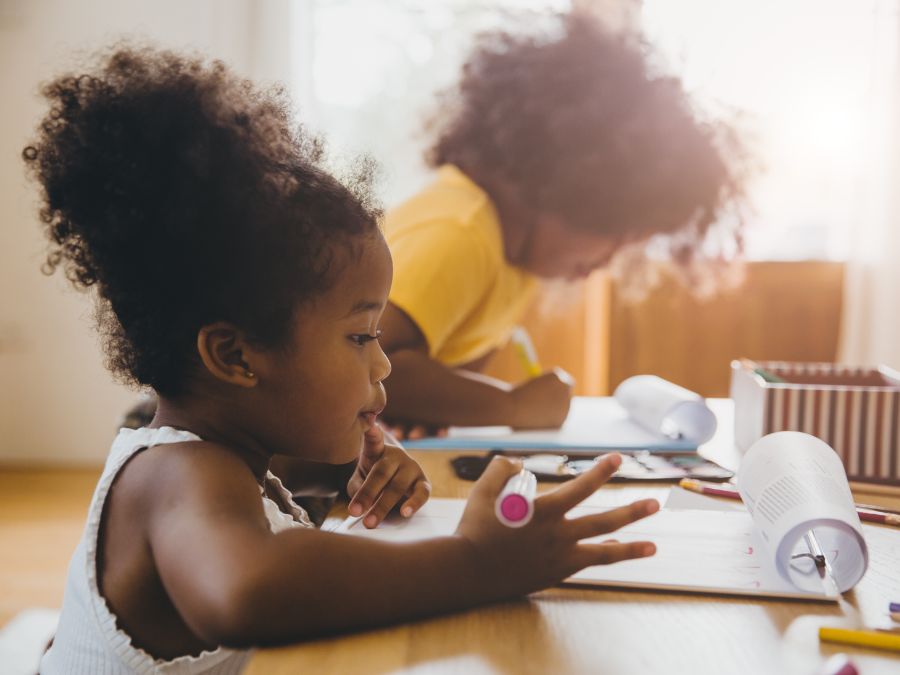
In May, we wrote a blog post about HOPE resources which stated, “As HOPE grows, the collection of resources on our positiveexperience.org website grows as well.” Several months later, this statement holds true. In light of new resources, this is a companion post to that first one, providing an overview of resources added in the last few months.
Curated HOPE Blog Posts: on our Resources page you’ll find curated lists of blog posts by subject matter—HOPE and Health Equity, HOPE and Covid-19, The Building Blocks of HOPE in Action, and HOPE in Collaboration. Given the large number of posts on our blog, this list is makes finding blog posts you’re interested in easier!
HOPE-Informed Approach Videos: this group of three short videos on the Resources page provides an example of how HOPE offers a shift in mindset that supports the initial encounter, demonstrating the importance of seeking out strengths and building a relationship. Read this blog post to learn more about these videos and incorporating HOPE into your interactions with patients and clients.
HOPE Handouts and Worksheets: though we do not have new handouts as of yet, this is a reminder that we have developed HOPE materials for frontline workers, providers, and families. Additionally, thanks to Mike Graham-Squire and the Seattle PEACE coalition (Prevention Education and Action for Community Empowerment) for translating some of our HOPE handouts since our last post on resources! Handouts followed by an asterisk below have been translated into Tigrinya, Spanish, Vietnamese, Chinese, Oromo, and Amharic! Here is a sampling of some handouts on this page:
- About HOPE, a general overview of HOPE
- The Four Building Blocks of HOPE*, detailed descriptions of each Building Block
- 10 Ways to Avoid ACEs*, tips on ways to prevent ACEs during this pandemic
- Inequities and Supporting Children, an outline of some inequities exacerbated by Covid-19 and how to speak with children about them
We hope this addendum to our previous guide directs you to even more resources, helping you learn more about HOPE and PCEs. Let us know in the comments what other resources you’d like to see or which materials are most helpful!


